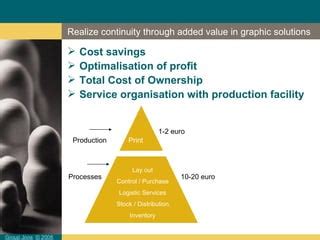Joos Ownership: Explore the Costs Before You Buy
Considering Joos ownership? Before you're swept away by the allure of this potentially lucrative investment, it's crucial to understand the full spectrum of costs involved. Ignoring these expenses can lead to financial strain and jeopardize your investment. This comprehensive guide will dissect the various costs associated with Joos ownership, ensuring you're fully informed before making a decision.
What are Joos? (Brief Overview for SEO & Context)
(Note: Since "Joos" isn't a widely recognized term, this section is crucial for SEO and clarifying what Joos are to the reader. Replace this with an accurate description of what "Joos" refers to. For example, if "Joos" refers to a specific type of investment property, replace this section with a detailed explanation. If it's a fictional product, describe it with relevant details for context.)
For the purposes of this article, let's assume "Joos" refers to a type of high-end, collectible item, potentially similar to rare coins or limited-edition artwork. Understanding the value and market fluctuations of Joos is paramount before investing.
Initial Purchase Price: The Obvious Cost
The most upfront and apparent cost is the initial purchase price of the Joos itself. This will vary significantly depending on factors such as rarity, condition, provenance, and market demand. Researching comparable sales and consulting with experts can help you determine a fair market value before committing to a purchase.
Transaction Fees and Commissions
Be prepared for associated transaction fees. Brokers, auction houses, or online marketplaces may charge commissions, often calculated as a percentage of the final sale price. These fees can add a significant amount to the overall cost, potentially exceeding several hundred or even thousands of dollars, depending on the value of the Joos.
Insurance Costs: Protecting Your Investment
Protecting your Joos investment requires adequate insurance coverage. The cost of insurance will depend on the value of the Joos, its storage location (home safe, specialized vault), and the level of coverage required. High-value items may necessitate specialized insurance policies with potentially higher premiums.
Storage and Security: Safeguarding Your Joos
Safe and secure storage is crucial to preserve the condition and value of your Joos. Depending on the nature of your Joos, this could involve renting a safety deposit box, investing in a high-security home safe, or utilizing a specialized storage facility for collectibles. These costs can range from modest to substantial, depending on your chosen storage method.
Maintenance and Conservation: Preserving Value
Certain types of Joos may require regular maintenance or conservation to preserve their condition and value. This could involve professional cleaning, restoration, or specialized handling. These costs can add up over time and should be factored into your budget.
Taxes and Duties: Understanding the Tax Implications
Depending on your location and the specific circumstances of your purchase, taxes and import duties may apply. It's crucial to understand the applicable tax laws and regulations in your jurisdiction to avoid unexpected expenses. Consulting a tax professional is highly recommended.
Resale Costs: Planning for the Future
While you may intend to hold onto your Joos indefinitely, understanding the potential costs associated with resale is vital. This might include commission fees paid to a broker or auction house, marketing costs, and any necessary preparation or cleaning before listing the Joos for sale.
Market Fluctuations: A Key Risk Factor
The value of Joos, like any collectible item, can fluctuate significantly depending on market trends and overall economic conditions. A drop in market value could result in a loss if you need to sell your Joos. Thorough market research and a careful assessment of risk are essential.
What are the potential risks of owning Joos?
The potential risks associated with Joos ownership include market volatility, theft or damage, authentication challenges (ensuring your Joos is genuine), and the need for specialized storage and maintenance. It's crucial to carefully assess these risks before investing.
How do I find a reputable dealer or source for Joos?
Finding reputable dealers involves extensive research, seeking recommendations from trusted sources, and verifying the dealer's credentials and history. Always verify the authenticity of Joos before purchasing.
What are the long-term costs associated with owning Joos?
Long-term costs include insurance, storage, maintenance, and potential conservation expenses. The value of Joos can appreciate or depreciate, so careful consideration of the overall cost is critical.
Conclusion: Informed Decisions Lead to Successful Investments
Owning Joos can be a rewarding experience, but understanding the full spectrum of costs—from the initial purchase price to long-term maintenance and potential resale costs—is crucial for making informed decisions. Thorough research, expert advice, and a well-defined budget are key to navigating the financial aspects of Joos ownership successfully. Remember, a well-informed investment is a successful investment.

